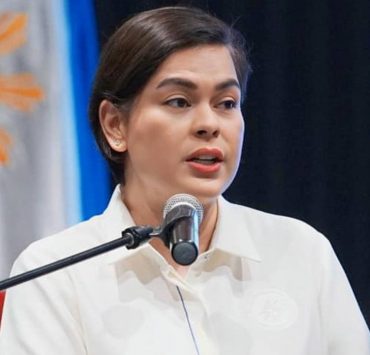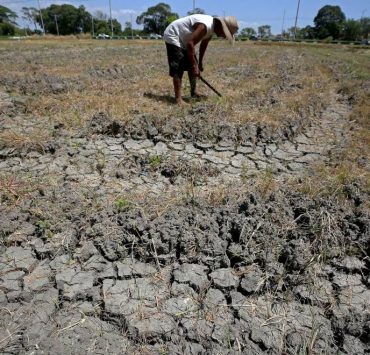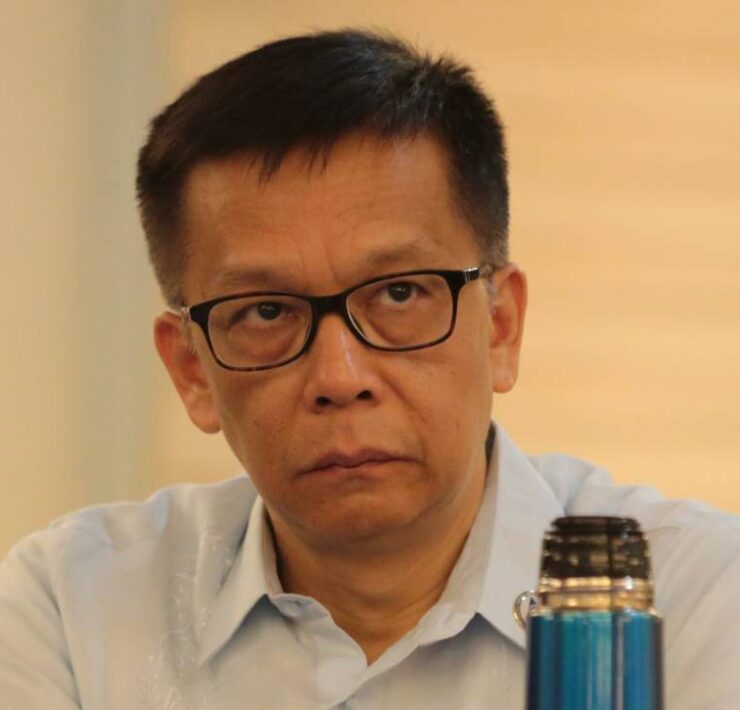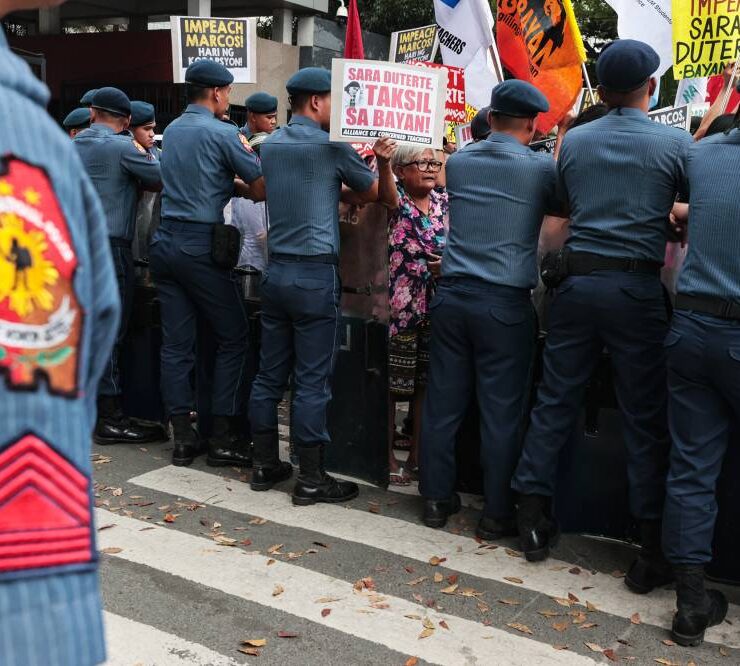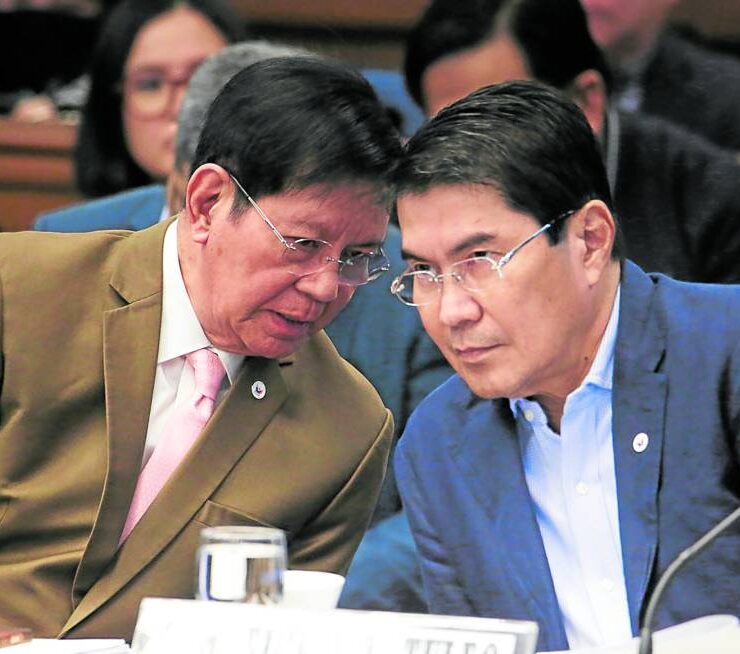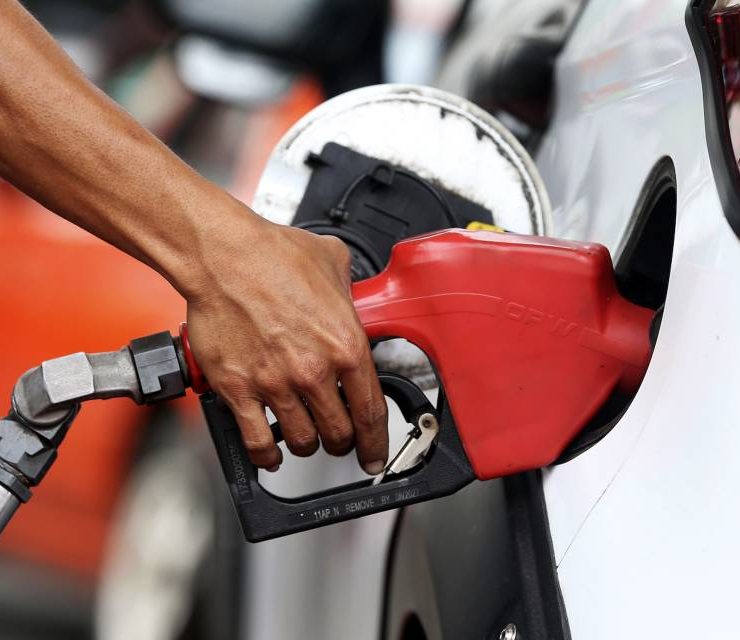Win: 36 Guo accounts financed illegal Pogo
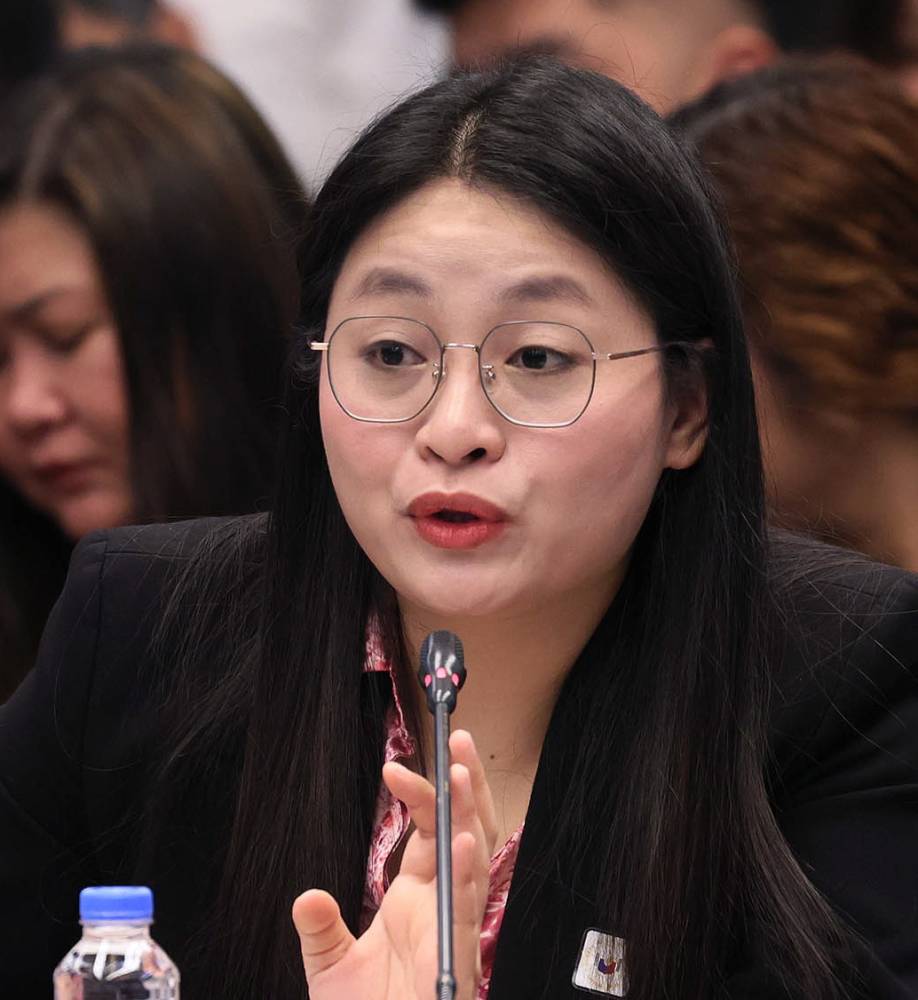
Sen. Sherwin “Win” Gatchalian on Friday said several billions of pesos had flowed into the 36 bank accounts of suspended Bamban, Tarlac Mayor Alice Guo, who allegedly served as a conduit in financing the illegal Philippine offshore gaming operator (Pogo) in her town.
“These are huge amounts. We are talking about billions (of pesos) in a span of three years that entered Alice Guo’s (bank) accounts,” Gatchalian said at a media briefing.
“If you read the income statements of the Guo-related family corporations, they either reported losses or their profits were just P100,000 or P200,000. On its face value, this is a red flag. It’s really puzzling where their money is coming from,” he said.
According to the senator, Guo’s bank accounts were among those covered by the freeze order that the Court of Appeals (CA) issued on Wednesday, two days after the Anti-Money Laundering Council (AMLC) filed an ex parte petition. The appellate court also included the mayor’s helicopter, 12 vehicles and 12 real estate properties in the freeze order.
The court order covered a total of 90 bank accounts in 14 financial institutions, 27 land titles and other high-value personal properties of Guo and six other individuals, and six companies.
“They could not justify the source of the money that came from outside the country. That’s a classic case of money laundering,” Gatchalian said.
“They used that money for their criminal activities and to bribe people. That’s why it’s important for us to detect the flow of money so that it will not be used for criminal operations in our country,” he added.
Pressure on AMLC
Gatchalian said that the senators had actually been pressuring the AMLC to pursue appropriate legal actions as part of the government crack down on Pogo companies and their service providers.
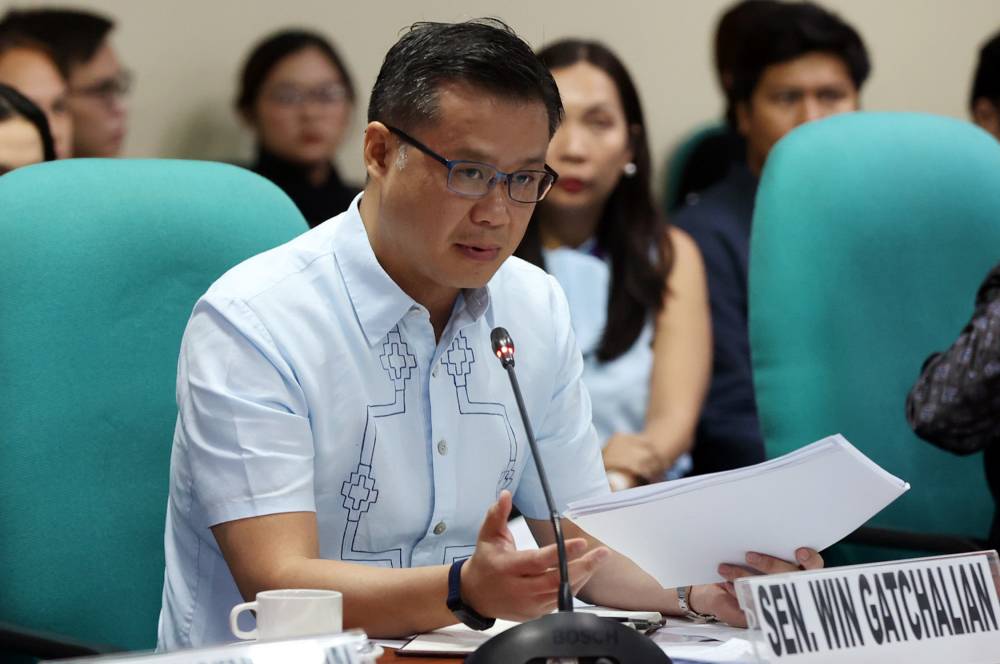
Senator Win Gatchalian during the continuation of the Senate hearing on Philippine Offshore Gaming Operators, Wednesday, July 10, 2024.
INQUIRER PHOTO / NINO JESUS ORBETA
“They (finally) filed a money laundering case (against Guo). And then the next step is to file a petition in the CA to freeze the assets because the source was illegal,” he said.
In the case of Guo, Gatchalian said that bulk of the funds were deposited to her bank accounts between 2019 and 2022. The fund transfers, he said, continued until her supposed role in the operations of Zun Yuan Technology Inc. came to light when the Pogo complex in Bamban was raided by the Presidential Anti-Organized Crime Commission on March 13.
Guo had vehemently denied that she was involved with Zun Yuan, saying that she had already divested from the real estate company that leased the 7.9-hectare property to the Pogo company.
But Gatchalian said the financial investigation conducted by the AMLC showed Guo’s direct connections with Zun Yuan and its predecessor, Hongsheng Gaming Technology Inc. He noted that she had received big amounts of money at the time when the Pogo complex, which was then under Hongsheng’s management, was being built.
Sprawling hub
The senator had earlier estimated that the sprawling online gaming hub, which had 36 multistory buildings, luxury villas, a swimming pool and underground tunnels, cost at least P6.1 billion to build.
The AMLC, he said, had provided him with a “very detailed” report on its investigation of the financial transactions of Guo, her family and their business associates.

Bamban Tarlac Mayor Alice Guo appears before the Senate as Sen. Risa Hontiveros flagged Guo’s alleged ties to chinese “criminals” during wednesday’s continuation of the senate probe into the mayor’s links to POGO hubs in the latter’s area.
INQUIRER/ MARIANNE BERMUDEZ
“A big portion of the money came from China and was sent to different individuals and corporations here in the Philippines,” Gatchalian said.
The funds originated from the accounts of numerous individuals and companies, according to him.
“For me, money laundering is one of the biggest crimes (related to Pogos). We have become a money laundering hub because it’s easy to bring (dirty) money here,” the senator lamented.
Conspiracy seen
“What happened in Bamban is again an eye-opener … because we’re looking into the shortcomings of the government agencies and other stakeholders in implementing our processes against money laundering,” he said.
Gatchalian suspected that some unscrupulous officials of private commercial banks had conspired with Guo and her alleged accomplices in facilitating the questionable entry of funds from China.
He pointed out that the AMLC received the reports about Guo’s suspicious bank transactions only recently after the Pogo scandal broke out.
“If you look at the timeline, this started way back in 2019. I was looking at the transactions, billions of pesos entered her accounts in a span of three years, but the banks did not report it,” Gatchalian said.
“Somebody from the branches of the banks could have connived with them that’s why these were not immediately reported (to the AMLC). I also suspect that the banks themselves were part of the conspiracy,” he said.
Gatchalian pointed to a similar incident when a branch manager at Rizal Commercial Banking Corp. in Makati City was found guilty of money laundering for facilitating the transfer of $81 million that hackers stole from Bangladesh’s central bank in 2016.
AMLC officials could not be reached for comment.
Banks must explain
AMLC’s statement on Thursday disclosing the freeze order did not say how much in total assets had been frozen or whether the banks holding the accounts under investigation were in Tarlac or other provinces, or in Manila.
Bangko Sentral ng Pilipinas (BSP) Deputy Governor Chuchi Fonacier, head of the Financial Supervision Sector, which is mainly responsible for the regulation of banks, said it was premature to comment on the liability of the banks concerned as the investigation was still ongoing.
But if certain banks are found to have committed violations, these banks would “definitely” be required to explain “as a matter of due process,” she told the Inquirer.
“The BSP continuously examines and reviews banks’ compliance and adherence to the Anti-Money Laundering Act,” Fonacier said. —WITH A REPORT FROM IAN NICOLAS CIGARAL














